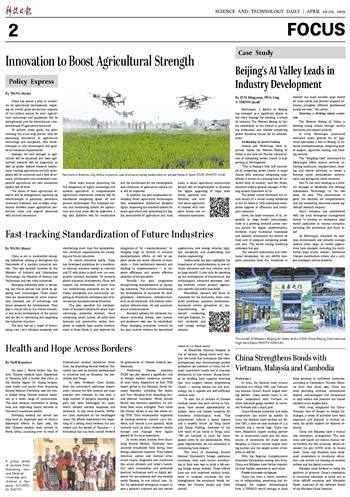
 |
China is set to standardize emerging industries, aiming to strengthen the framework of a modern industrial system. This was recently unveiled by the Ministry of Industry and Information Technology, the Ministry of Science and Technology and two other ministries.
Emerging industries refer to emerging and future sectors that grow by applying new technologies. These industries are characterized by active innovation, intensive use of technology, and broad prospects for development. They play a crucial role in the overall economic and social development of the nation and are key to optimizing and upgrading the industrial structure.
The plan has set a target of formulating over 1,800 industry standards and establishing more than five standardization technical organizations for emerging and future industries.
To ensure industrial safety, China has developed guidelines for a mandatory national standard system in industry and IT, with plans to draft over 100 compulsory national standards. To promote global industrial development, China will support the formulation of more than 100 international standards led by domestic enterprises and institutions, targeting an 88 percent conversion rate of international standards across the sector.
The plan specifies the establishment of standard systems for smart manufacturing, industrial internet, cloud computing, smart homes, all-solid-state batteries and automotive carbon footprints to support high-quality development in these fields. It also explores the integration of "AI + standardization," leveraging large AI models to enhance standardization efforts. AI will be applied across the entire lifecycle of standards — from preliminary research and drafting to implementation — to improve efficiency and ensure effective adoption of the standards.
Notably, the plan emphasizes strengthening standardization in emerging industries. This includes accelerating the development of standards for new-generation information infrastructure, such as 5G-Advanced, low-altitude information infrastructure, 6G and quantum-secure communication.
Standard systems for advanced materials—including metals, non-metals, and polymers—will also be established. Other emerging industries covered by the plan include robotics for specialized applications, new energy vehicles, high-end equipment and shipbuilding and marine engineering.
Additionally, the plan highlights the importance of standardization in low-altitude industries and civil aviation, such as large aircraft. It also calls for speeding up the development of foundational, key technological, advanced processes, testing methods, critical product, application-specific and safety standards.
Meanwhile, research will focus on standards for the metaverse, brain-computer interfaces, quantum information, humanoid robots, generative AI, biomanufacturing, advanced computing, next-gen displays, future networks and new energy storage systems.


 Next
Next




